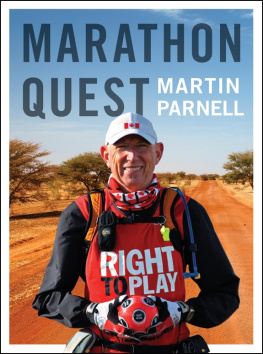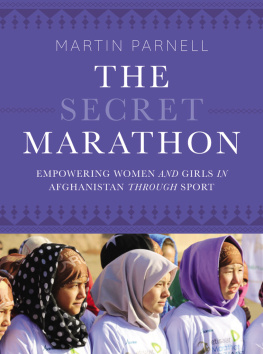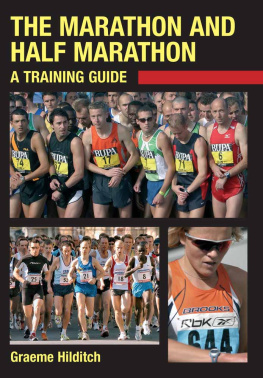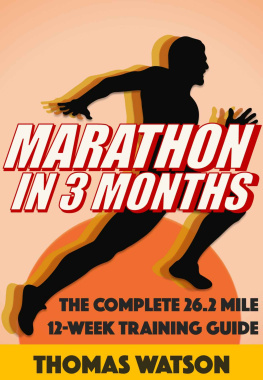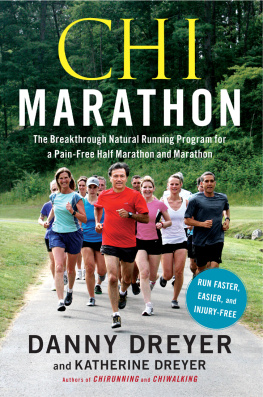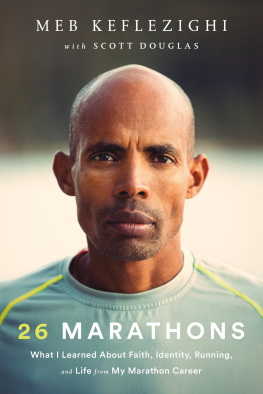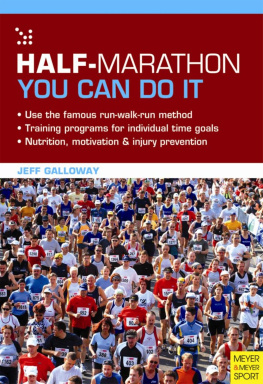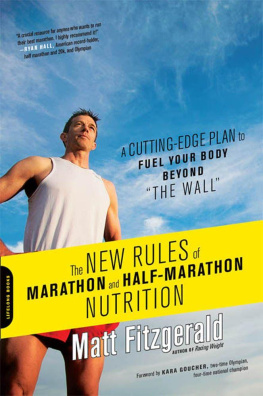Families are like fudge mostly sweet with a few nuts.
Many athletes will tell you they have always been athletic, were always picked first for teams on the playground, always had a desire to run or shoot hoops or slap a puck into the net. Some will say they were always focused on their sport, that it was their one true calling and goal. I had a different lead-up to my running career, and I came to running relatively late in life. But when I think about my beginnings, I realize that all of my early experiences and running idols helped point me in a certain direction, if perhaps in a roundabout way.
I have always been told I was a huggable baby. That meant I had fat cheeks and ample baby fat. The fat cheeks were always getting pinched by aunts and grandmothers. I was born in 1955 in Buckfastleigh, Devon, England, the eldest of six kids, including Sally, Jan, Louise, Peter and Andrew.
When I was 11 my family almost emigrated to Australia, but bought my grandmothers rundown 13th-century farmhouse instead. Mum and Dad worked hard to turn it into a guest house, and we kids helped. At around this time I moved up to grammar school: a new level of education, a new level of teasing, thanks to my persistent baby fat. Because I was a good size, I was picked to play Number 8 on the rugby team. This is the person who holds the scrum together at the back and gets his ears rubbed off.
When I was 14 I took a hiatus from rugby, and school, for about eight weeks, after the doctor diagnosed me with rheumatic fever. I had to stay in bed at home and not move. It wasnt all bad, as Mum bought me bunches of grapes, and I watched every episode of A Man Called Ironside. I also immersed myself in comics. My favourite character was Alf Tupper, a fictional, working-class, hard-as-nails runner whose adventures under the title Tough of the Track appeared first in TheRover and then TheVictor, British boys comics.
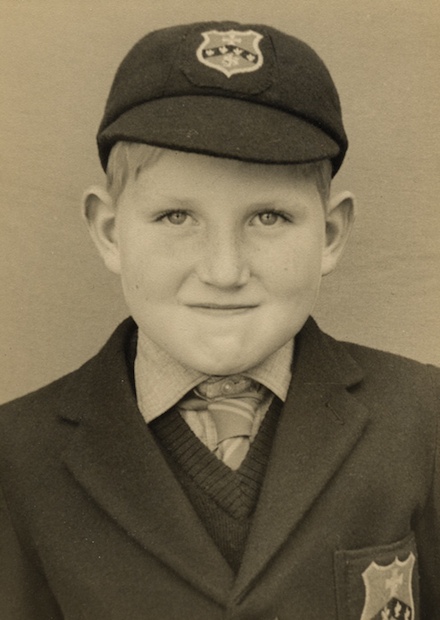
Me in my very smart St Josephs School uniform.
Alfs most endearing characteristic was his love of fish and chips, and he won many a race and rescued many a citizen in distress, sustained by the stuff. He worked as a welder and was the eternal underdog. He had many obstacles to overcome, but he usually came through in the end. What a guy!
After the summer holiday, I was back at school but was told to keep away from sports. But by the spring of the next year, the doctor said I was making good progress and could start getting some exercise. Finally, by the next fall, I felt I was well enough to take a few more steps forward. I asked the sports teacher if I could compete in the one-mile race at the school sports day. He wasnt enthusiastic but said yes. My first experience with running would be quite an event.
The race was four times around the course. The gun went off and I hammered around the track. Then I saw the sports teacher waving frantically at me to come off. I pulled off and asked, Whats wrong?
Your face is beet red, and I was worried you were going to collapse.
So ended my running career for the time being.
During my 16th year I grew six inches, which caused some upset and confusion when my peers had to find a replacement nickname for me. By the end of the spurt, I was no longer Tubby Parnell but Bean Pole Parnell. (There was a period of three days while I was growing when nobody called me anything. You cant win.) In the meantime, it was time for me to make a choice between arts and sciences. I chose maths, physics and economics as I was thinking of pursuing a career in engineering, mostly because I wanted to travel, make good money and not have to wear a tie.
In the end, I chose to become a mining engineer and trained at the Camborne School of Mines. During the summers, I worked at two mines, one a fluorspar mine in County Durham for ICI and the other an open-pit lead and zinc mine for Cominco Ltd. at Pine Point along Great Slave Lake in Canadas Northwest Territories. When I graduated I really wanted to return to Canada, but the major employers in 1976 were in Zambia and South Africa. However, I was intent on the Great White North, so I wrote to my former boss at Pine Point and asked if there were any engineer-in-training opportunities available with Cominco. There were, if I could get my landed immigrant status sorted out. I thought I would be posted to Yellowknife, but I ended up in Kimberley, BC, at the underground lead-zinc Sullivan Mine.
On August 19, 1977, at the age of 22, I left England. It was a foggy day and Mum and Dad drove me up to London, Heathrow. I had bought a backpack and filled it with all my worldly goods. I had sixty dollars in my pocket, which was enough to get from the airport to a hotel in Kimberley. When I arrived, I soon found an apartment near the mine offices and set to work as engineer-in-training, planning the mining of ore blocks. My boss at the mine was Tom, an Aussie for whom I had a lot of respect we got along well. Little did I realize the impact he would have on my life 35 years later.
During my two years in that beautiful Rocky Mountain town, I worked hard, refined my skiing skills and made forays in society. I even broke into a sports club where I decided to try out that most Canadian of sports, hockey. Before taking up with a recreational league, I had only ice skated once, in Bristol, where I had wobbled around the rink about ten times (clutching the boards all the way) before going for a cup of tea. By the end of my time with recreational hockey in Kimberley, I wasnt the best skater but I could pick up a pass and feed it off.
By June 1979, Cominco had decided I should go to Yellowknife after all, and I started at the Con gold mine in August. I joined a local hockey team, The Dusters, which was made up mostly of teachers from the local schools. One of those, a physical education teacher at St. Patricks School, Gerard, is, to this day, one of my best friends. We were both keen to improve our social lives. We took part in various sports activities and even joined a dance group. Gerard tells hilarious stories about our activities as we prepared for a dance performance.
Gerards teacher friends were always trying to match him up with single women teachers, one of whom was a very attractive brunette named Wendy. However, as fate would have it, it was me she ended up falling in love with, and I felt the same about her. Happily, she agreed to be my wife.
These were high times for me in Yellowknife. Not only had I found someone I would soon marry, but in the summer of 1980 I experienced something that Id never seen before, something that has stuck with me until this day and continues to inspire me.
During that summer, I began hearing stories of a young man who was trying to run across Canada to raise money for cancer research. His name was Terry Fox, and his quest was called the Marathon of Hope. What made Terrys goal so remarkable was that he had had one of his legs amputated due to cancer, so he ran with a prosthetic leg. Terry had started his ultramarathon in early April from St. Johns, Newfoundland. On September 1 he was forced to stop just outside of Thunder Bay, Ontario. Canadians were compelled by his story, by his desire to run, to change the world. Every year, communities small and large still hold Terry Fox Runs to raise money for cancer research. In September 1982 Gerard and I joined in and raised funds for the Terry Fox Foundation by running the 10 km event. As touched as I was by Terrys work, I could not have guessed how his endeavour would stay with me, and how it would contribute to my own life, so many years later.
CLIFF YOUNG

